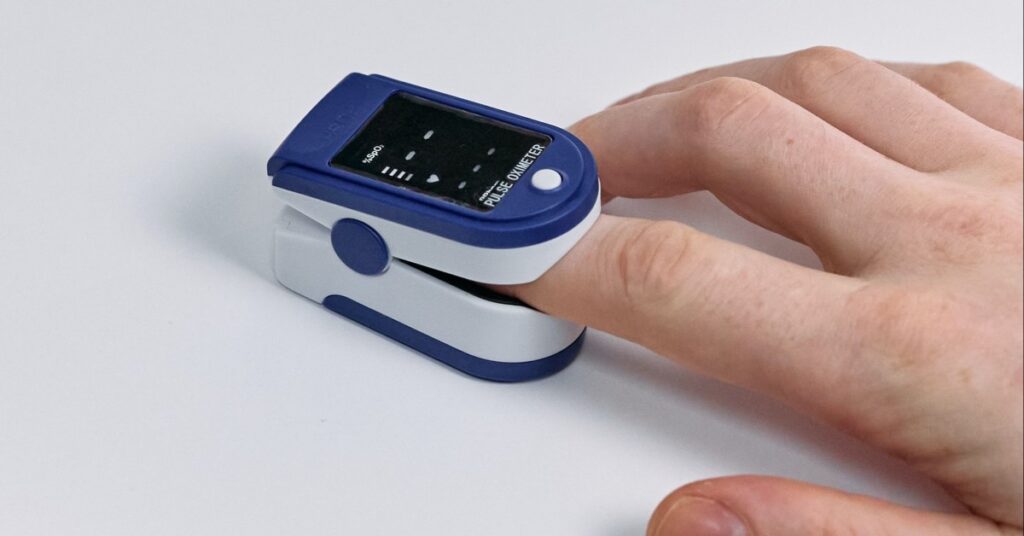
Highest-Paying Healthcare Administration Jobs
Healthcare administrators work behind the scenes so that healthcare systems [...]

The big data era has facilitated a wealth of opportunities to explore and solve previously unsolvable—and perhaps even unknown—problems. That’s certainly the case in healthcare, where the transition to electronic health records has generated a mega-mountain of priceless data.
Who is going to make sense of all that data? Health informatics professionals, that’s who. According to University of Pittsburgh – Pittsburgh Campus, which offers an online Master of Science in Health Informatics, “Health informatics is a science that defines how health information is captured, transmitted, analyzed and utilized. It focuses on information systems, informatics principles, and information technology (IT) as it is applied to the continuum of healthcare delivery.”
Health informatics can improve health services in numerous ways. It is instrumental in:
The healthcare industry faces significant challenges, including a shortage of healthcare professionals to care for aging populations. Because it can deliver solutions that maximize production and reduce human error, health informatics is the perfect field for these times.
There are many career paths to choose from—including entry-level positions and those requiring a master’s degree. You’ll be able to earn great money and, more importantly, help improve a worryingly inefficient healthcare system.
Read on to learn more about eight health informatics careers you’ll find in almost every city, why they’re worth pursuing, and how to get them. This article covers:
Health informatics can improve healthcare access and practices. It relies on technology to create new policies and improve inefficient systems.
Informatics professionals require both IT and healthcare skills. According to the Healthcare Information and Management Systems Society (HIMSS), core informatics competencies include:
Just simple electronic delivery systems—used to send medical records from one physician’s office to another—can have an enormous impact. Not only do they offer savings, including on travel and filing, but shared access to data and alert systems can help reduce errors, according to HelathIT.gov. Quick access to records can be especially useful if a patient is unresponsive and unable to answer health questions.
Health informatics improves the overall patient experience by addressing issues on a broad public health scale. Population trends can improve processes like identifying candidates for advanced screenings. Patients can also upload data and can gain a greater role in the healthcare process.
With enough data, healthcare providers can even utilize precision medicine, which can identify a solution for a person by combing through a bank of data from other patients with similar backgrounds. This practice is currently in the development stage, but a few existing applications have already been implemented, including one that matches blood donors to patients that need transfusions.
As technology becomes more integrated into clinical practice, the need for health informatics specialists continues to grow. Professionals typically have a mix of data and clinical experience, but there’s no prescribed balance. You may primarily focus on data or have spent a decade in nursing—much depends on the situation and your desired job.
The job description for health informatics professionals can change based on where they work—public health experts focus on different things than professionals who address informatics in private workplaces. Standard settings for informatics professionals include:
With this background knowledge, here are top jobs that you can earn in health informatics, including education requirements and prospective salaries:
According to a job posting at Columbia University, bioinformatics programmers deliver “primary bioinformatics analysis of next-generation sequencing and proteomics data.” Listed duties revolve around assembling and analyzing data, including creating and maintaining systems and delivering data sets to the right collaborators.
To qualify, you’ll likely need a background in computer science or a related field, such as bio-statistics, applied mathematics, or bioinformatics. You also need to know a programming language like R, Python, or C++ and have experience working with omics data, which addresses:
According to Glassdoor, bioinformatics programmers earn an average salary of more than $100,000 per year.
Like bioinformatics programmers, these professionals work with medical and genome data, including database design and algorithm development. According to West Virginia University, bioinformatics scientists research subjects like:
Bioinformatics scientists need a background in hard science (think chemistry or biology), computer science, and research training. According to PayScale, bioinformatics scientists earn just over $96,000 per year on average.
Chief medical information officers (CMIO) occupy a senior leadership role. They typically work in hospitals, though they can work in other healthcare settings. Their job responsibilities include:
These professionals typically come from advanced IT backgrounds or start their careers as physicians, meaning CMIOs typically have long academic records. Potential degrees include a Master of Science in Health Informatics or a Master of Health Administration. If you start as a doctor, you’ll need a Doctor of Medicine (MD). Annual salaries for these professionals can reach well over $300,000 per year.
The chief nursing informatics officer typically has extensive clinical and data analytics experience. These professionals work with other health leaders to craft organization-wide care plans and polices. The role typically requires a master’s degree in a subject like health informatics or nursing informatics.
The average chief nursing informatics officer earns a salary of $120,000 per year, according to PayScale.
Another top job in informatics, clinical informatics specialists utilize data to optimize patient care. This can mean anything from developing care plans to designing organizational systems. Specialists work in hospitals and private practices alike and often have either a clinical nursing background or extensive data experience.
These professionals earn an average salary of nearly $78,000 per year, according to PayScale.
The director of clinical informatics helps healthcare organizations, such as hospitals or research centers, manage patient or clinical data. The job may require you to:
A director of clinical informatics may have an MD or a master’s in healthcare administration.
According to ZipRecruiter, clinical informatics managers earn an average annual salary of $115,675.
According to the United States Bureau of Labor Statistics, “health data analysts collect, manage, and analyze health-care information.” This position is far more focused on analyzing data, including creating and maintaining collection systems and parsing and mining data, than any other role on this list. These professionals need advanced programming skills and an understanding of healthcare laws, drug classifications, and relevant billing codes.
Healthcare data analysts typically hold a bachelor’s degree in computer science or biostatistics. According to ZipRecruiter, healthcare data analysts earn an average annual salary of $86,806.
Nurse informaticists have several essential job functions, according to a profile that appeared on the University of California – San Francisco website. They can include establishing pathways for data to flow efficiently and impactfully, maintaining lines of communication between actors with different specialties, and helping to establish new technology in clinical practice.
According to PayScale, the average nursing informatics specialist earns slightly over $84,000 per year.
While it’s possible to earn health informatics with just a bachelor’s degree, you’ll likely require a master’s to advance. As machine learning, data visualization, and artificial intelligence become more ingrained in the field, the qualifications for informatics professionals will become more stringent. Luckily, completing a graduate education is more attainable than ever, thanks to the rise of quality online degree programs.
Earning a master’s is one of the best ways to round out your skillset. A master’s can be appealing to those who want to move into informatics and have a technical background but no healthcare experience, or vice versa.
There are several kinds of informatics degrees to choose from, each with a different focus. Top degree titles include:
Many health informatics degrees offer concentration options. You may specialize in an area like:
Healthcare is one of the few industries that will never cease growing. Pursuing a degree in health informatics can make you an innovator in an industry that needs to solve many issues. The call for technological solutions will increase, meaning a greater need for health informatics professionals.
(Last Updated on February 26, 2024)
Questions or feedback? Email editor@noodle.com

Healthcare administrators work behind the scenes so that healthcare systems [...]

The push to require all nurses to have at least [...]
Categorized as: Health Informatics & Sciences, Information Technology & Engineering